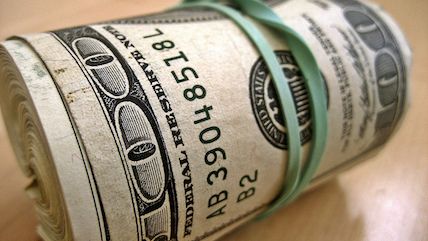No, the U.S. Is Not an Oligarchy
The middle class is just as likely to get its way as are the rich, a new paper finds.


About this time two years ago the stories started making the rounds. "The US is an oligarchy, study concludes," read one headline. "America is an oligarchy, not a democracy or republic, university study finds," asserted another.
The idea, put forward by Martin Gilens of Princeton and Benjamin I. Page of Northwestern, was that the policy preferences of the rich, and not the middle class, dominate actual political outcomes—but in a functioning democracy you would expect policy to mostly track the preferences of the latter. "Economic elites and organized groups representing business interests have substantial independent impacts on U.S. government policy," their paper found, "while average citizens and mass-based interest groups have little or no independent influence."
Stated otherwise, "When a majority of citizens disagree with the economic elites, they generally lose," as it was summarized on The Daily Show.
Not so fast! says University of Texas at Austin Ph.D. candidate J. Alexander Branham. At a panel at the American Association of Public Opinion Research (AAPOR) conference on Friday he presented the findings of a paper suggesting that those dramatic claims are probably getting it wrong.
If the oligarchy study's results are true, "that's really worrisome for how we think about democracy in the U.S.," Branham said. "I'm going to try to convince you of two things: The first thing is that it's really, really rare for the middle class and the rich to actually disagree about the policies that we want. And the second thing is that when you get a disagreement between the middle class and the rich, it's basically a coin flip as to which group gets their way."
Indeed, the paper looked at 1,779 potential public policies that were under consideration during a 22-year period starting in 1981 (the same data set Gilens and Page use). It found that nine times out of 10, a majority of the rich—or people at the 90th income percentile or above—have the same policy preference as a majority of the middle class—or those at the 50th income percentile—according to public opinion surveys.
There were just 185 cases where the two groups took opposite positions (with the rich wanting a policy to pass and the average citizen wanting it to fail, or vice versa). And of those 185, the 50th percentile got its way 87 times, for a win rate of 47 percent. The 90th percentile won 53 percent of the time, and those numbers are not statistically differentiable from each other, Branham says.
Not exactly the stuff of oligarchy.


Show Comments (225)